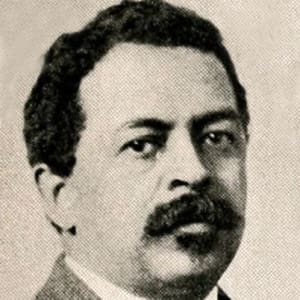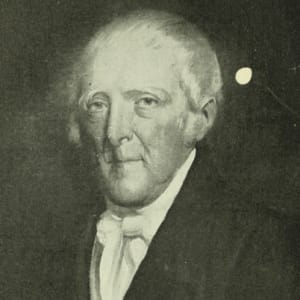
William Monroe Trotter
William Monroe Trotter was a Harvard-educated journalist and activist who championed equal rights for African Americans.
Synopsis
Born on April 7, 1872, in Chillicothe, Ohio, William Monroe Trotter went on to become the first Phi Betta Kappa graduate from Harvard, and a staunch opponent of the more conciliatory race-based ideas of Booker T. Washington. Trotter founded the paper The Guardian and helped W.E.B. Du Bois organize the Niagara Movement of 1905. He also opposed President Woodrow Wilson's segregationist policies.
Early Life and Education
William Monroe Trotter was born on April 7, 1872, in Chillicothe, Ohio, and raised in Hyde Park, Boston. His father, James, was a writer and former civil rights lieutenant who worked in real estate. Trotter excelled in academics growing up, becoming his predominantly-white high school's class president and attending Harvard University in the early 1890s. He made history as Harvard's first African-American student to become a member of the Phi Beta Kappa honor fraternity before graduating magna cum laude from the school in 1895, later earning a master's degree. Stalled from going into banking due to discrimination, Trotter worked in real estate. In 1899, he married Geraldine L. Pindell.
Founding 'The Guardian'
Trotter became a staunch opponent of racial discrimination and found himself in conflict with Booker T. Washington, the era's most popular African-American leader. Washington advocated a more conciliatory approach with the status quo and pushed for African Americans to pursue vocational and agricultural training, which Trotter found to be a problematic stance considering Washington's luminary status among white political leaders.
In 1901, Trotter co-founded the Boston Literary and Historical Association. With colleague George Forbes, he established The Guardian newspaper to disseminate "propaganda against discrimination." The publication pushed for African-American equality and critiqued Washington's views.
Becoming Allies With W.E.B. Du Bois
In the summer of 1903, Washington visited the AME Zion Church in Boston to give a speech. During the meeting Trotter questioned Washington, which led to a shouting match and ensuing ruckus dubbed "The Boston Riot" by the press. Trotter was arrested, fined and sentenced to a month's imprisonment, during which time he read W.E.B. Du Bois' book The Souls of Black Folk.
Upon release, Trotter co-established the National Negro Suffrage League and in 1905 worked with Du Bois to help organize The Niagara Movement, a group of African-American leaders who gathered in Canada and set forth a manifesto calling for full equal rights for black citizens, with the words, "We claim for ourselves every single right that belongs to a freeborn American, political, civil and social."
Taking on Woodrow Wilson
Though Trotter later attended the 1909 conference that would lead to the creation of the NAACP, he wouldn't align himself with the civil rights organization due to his insistence on there being an all-black group and thus focused on developing the National Equal Rights League.
Trotter also voiced his opinion in the realm of presidential politics. He had initially supported Woodrow Wilson during his campaign, but protested the administration's policies after seeing that Wilson supported job segregation, with Trotter making his views known at two separate White House meetings. Trotter also led campaigns against the 1915 film Birth of a Nation and its racist messages.
Later Years and Legacy
Trotter experienced personal loss in 1918, when his wife passed from the era's flu epidemic. After Wilson refused to appoint an African-American delegate to the Paris Peace Conference of 1919, Trotter crossed the Atlantic by stowing away on a ship as a cook. He wasn't allowed to attend the conference but was able to publish articles for French media.
In the 1920s, Trotter continued his calls and protests for the end of segregation on a governmental and local level and continued to helm The Guardian. Trotter was found on his birthday, April 7, 1934, on the street outside of his home, believed to have fallen or committed suicide.
Trotter's work is seen as being an important precedent to the direct-action methods used in the Civil Rights Movement of the 1950s and '60s. Information on Trotter's life can be found in the Stephen B. Fox biography The Guardian of Boston. His legacy is also remembered via Harvard's William Monroe Trotter Scholars Program and the William Monroe Trotter Institute at the University of Massachusetts.
Related Videos
Booker T. Washington – Mini Biography
W.E.B. Du Bois – The Niagara Movement(TV-14; 3:46)




